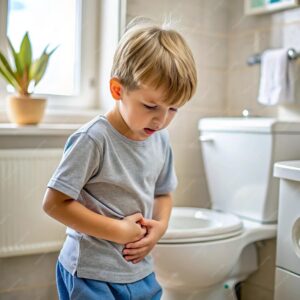
Managing Diarrhoeal Disease with Dr. Priyanka Jain
Diarrhea disease is a very common and problematic health condition that has a significant impact on global health. This condition occurs when the volume of stool is more than normal and its consistency is liquid. Diarrhea problems can affect a person’s quality of life and sometimes lead to serious health problems. In this article, we will discuss the causes, symptoms, treatment, and prevention measures of diarrhea in detail from Dr. Priyanka Jain’s view.
Causes of Diarrhea disease
According to Dr. Priyanka Jain, the best child specialist in Indore, main causes of Diarrhea disease can be the following:
Viral infections:
Rotavirus: It is a major cause of diarrhea especially in young children. Spreads through contaminated food and water and can spread rapidly due to high contagiousness.
Norovirus: It is a common cause of diarrhea in adults and is highly contagious. It spreads through food and water.
Bacterial Infections:
Salmonella: This bacteria enters the body through unhygienic food, especially raw or undercooked meat. Dr. Priyanka Jain says that the symptoms of salmonella infection can be severe and can cause prolonged diarrhea.
E. coli: This bacteria also spreads through contaminated food and water and can cause severe diarrhea disease .
Shigella: This bacteria usually spreads through unclean water and food contact and can cause diarrhea as well as fever and abdominal pain.
Parasitic Infections:
Gardia: This protozoa enters the body through unclean water and can cause diarrhea as well as abdominal pain and cramps.
Amebia: This also spreads through contaminated water and can cause diarrhea as well as other stomach problems.
Dietary Problems:
Lactose Intolerance: Inability to digest dairy products can cause diarrhea.
Spicy and oily food: Excessive spicy and oily food can also cause diarrhea.
Side effects of medicines:
Antibiotics: These medicines can affect the normal bacteria in the intestines, causing diarrhea.
Lack of hygiene:
Polluted water and unhygienic food: According to Dr. Priyanka Jain, diarrhea is more prevalent in areas with poor hygiene.
Symptoms of diarrhea disease
According to Dr. Priyanka Jain, the common symptoms of diarrhea disease can be the following:
Liquid stool: The stool is more liquid than normal and occurs more frequently.
Abdominal cramps and pain: Diarrhea disease may be accompanied by abdominal pain and cramps.
Nausea and vomiting: Diarrhea may also be accompanied by nausea and vomiting.
Fever: In some cases, diarrhea may also be accompanied by fever.
Dehydration: Excessive diarrhea leads to loss of water and electrolytes in the body, which can lead to dehydration. Dr. Priyanka Jain says that this condition can be extremely serious and may require prompt medical attention.
Treatment and Management
According to Dr. Priyanka Jain, the treatment and management of diarrhea disease depends on its cause and severity:
Replenishment of water and electrolytes:
ORS (oral rehydration solution): Consume ORS to prevent dehydration from diarrhea. It replenishes the loss of water and essential electrolytes.
Natural fluids: Coconut water, diluted tea, and other fluids may also be useful.
Balanced diet:
Light food: Take light and easily digestible foods like rice, apple sauce, and toast.
Avoiding spicy and oily food: Avoid excessively spicy and oily foods.
Medications:
Anti-diarrheal medications: Medications like loperamide can be used on the advice of a doctor. Dr. Priyanka Jain says that these medicines should be taken only on the advice of a doctor.
Antibiotics: If diarrhea is caused by a bacterial infection, antibiotics may be needed.
Hygiene:
Handwashing: Wash hands regularly with soap and water.
Clean food and water: Take care of food and water hygiene.
Medical advice:
If diarrhea is severe, lasts a long time, or has other symptoms such as fever, bleeding, or dehydration, contact a doctor immediately. Dr. Priyanka Jain advises that if a serious condition arises, it is extremely important to get quick medical help.
Preventive measures
According to Dr. Priyanka Jain, the following measures can be taken to prevent diarrhea:
Hygiene:
Hand hygiene: Make it a habit to wash hands thoroughly.
Safe water:
Water hygiene: Drink only boiled and clean water.
Safe foods:
Food hygiene: Eat food cooked thoroughly and avoid unhygienic places.
Vaccination:
Rotavirus vaccination: Vaccinating children against rotavirus can reduce the risk of diarrhoea.
Conclusion
According to Dr Priyanka Jain, Diarrhea may be a common problem, but its severity and impact on health cannot be ignored. Through proper hygiene, diet, and medical supervision, diarrhoea can be controlled and serious health problems can be avoided. If diarrhoea persists or other symptoms develop, it is important to seek medical advice.

